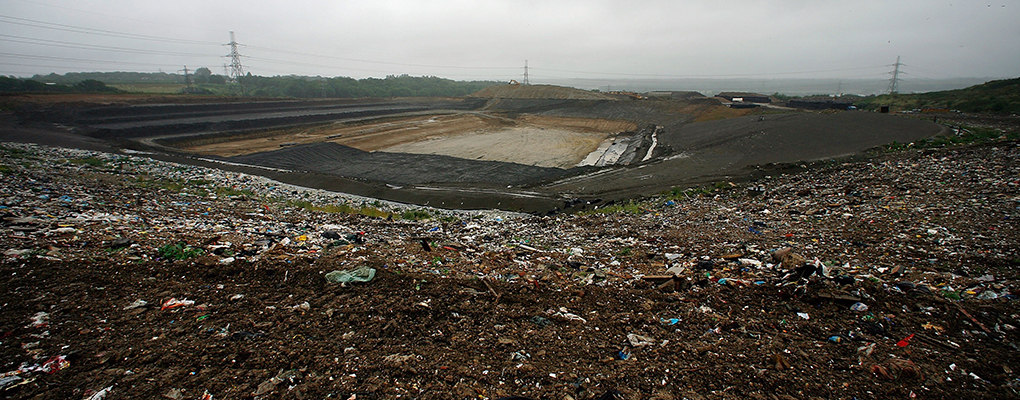
Take, make, consume and dispose. This manner of unsustainable consumption has always played a part of the growing global economy. Waste, a by-product of economic activity, acts as a useful input to economic activity and its management holds significant economic implications. The utopian world of bountiful natural resources has faded into the growing smog and what we are left with is a reality where 11.2bn tonnes of landfill waste accumulates globally and the number is growing at an alarming annual rate.
The linear ‘throw away’ economy we currently live in is no longer a viable option and companies and countries are implementing zero-waste policies worldwide to tackle the issue. By recycling waste and then reselling the recycled waste companies have found a new source of revenue that simultaneously increases social responsibility and lowers their carbon footprint. This upsurge to create a regenerative circular economy can help to reverse the huge environmental cost the world is currently paying. With Unilever recently announcing itself as the first global company to achieve zero wastage, what was once an environmental dream is fast becoming a major business priority.
A global redesign
A linear model of consumption is no longer realistic in the burgeoning face of resource depletion. Research carried out by the World Economic Forum suggests that our linear economy is fast reaching its limits: 65bn tonnes of raw materials entered the eco system in 2010 and this figure is set to reach 82bn tonnes by 2020. Research conducted by McKinsey & Co predicts that by 2030 three billion people from developing countries will rise into the middle class. This will create an unprecedented demand for energy and resources.
The linear ‘throw away’ economy we currently live in is no longer a viable option
Speaking to World Finance, EU Commissioner for Environment, Maritime Affairs and Fisheries, Karmenu Vella said: “For 200 years of the industrial revolution, we have had one very specific type of one particular business model. We mine raw materials, make products, create demand, sell, often with inbuilt obsolescence and then at the end of the cycle the product is thrown away and becomes waste. This was always seen as the way – easy – straightforward and completely unsustainable. It is time to look at new production cycles.”
In a circular economy 80 percent of waste is created at the design stage and so products are specifically designed to be disassembled and reused to keep resources in circulation for longer. A circular economy, regenerative by intention, provides businesses with an industrial model that dissociates prosperity from resource consumption growth.
In a statement, Paul Polman, CEO of Unilever said: “The concept of a circular economy promises a way out. Here products do not quickly become waste, but are reused to extract their maximum value before safely and productively returning to the biosphere. Most importantly for business leaders, such an economy can deliver growth. Innovative product designers and business leaders are already venturing into this space.”
Breaking the status quo
Landfill waste has dramatically increased with the EU producing more than two billion tonnes of waste, including hazardous materials, every year. In Eastern Europe, Caucasus and Central Asia the situation is worse with nearly four billion tonnes produced in 2009. In order to make zero waste an effective part of business a full transformation from a linear to circular economy is required and organisations must depart from the current status quo and collaborate with interdisciplinary parties.
A transition to a circular economy is estimated to be worth more than $1trn in material savings and McKinsey & Co predicted a global saving of $2.9trn from reducing landfill waste. The rise of a circular economic model would eliminate the use of toxic chemicals that can re-enter the biosphere and ensure the minimal use of inputs. By maximising the value of the product in each stage of the process the model will focus on optimising the entire chain rather than each link allowing companies to establish mutually beneficial relationships.
If the situation is to change a paradigm shift is needed to focus sustainability at the heart of industrial organisation and business models. With several hoops to jump through the primary issue is overcoming the complex supply chains. A simple product could be built using components from a number of countries and overcoming this would involve helping manufacturers develop an understanding of how materials are sourced and processed.
Trailblazers
Unilever claims to be the first global company to have achieved zero waste in all of its 240 factories in 67 countries and they encourage a circular economy through a number of schemes. In Cote D’Ivoire waste is turned into low cost buildings while in India organic waste is composted and shared with the local community. The local team in Egypt empowers disabled employees to earn an extra income by recycling waste material from their production lines. In China, Unilever’s largest factory in Asia uses waste to manufacture bricks and paving.
In Denmark, Carlsberg is developing the world’s first biodegradable receptacle for beverages. The country has banned the construction of new incineration plants and aim to recycle 50 percent of all household waste by 2022. The Netherlands also has new targets with the aim of reducing waste-to-incineration by 50 percent and bringing waste-sorting and separation at the source to 75 percent. Sweden passed legislation that requires retailers selling electronic goods to accept the same quantity for reuse or recycling.
Vella added: “The circular economy sees product designs that facilitate effective recovery and reutilisation of components, in ways that minimise loss of value. Accordingly, companies adjust their business models to better protect their investments in valuable materials.”
As more businesses start to favour this model, the consumer can be a powerful driver towards this new circular economy. To achieve a zero-waste world a monumental effort is required by countries, companies and consumers to prioritise green waste removal methods and transform our global economy to ensure a sustainable future.


